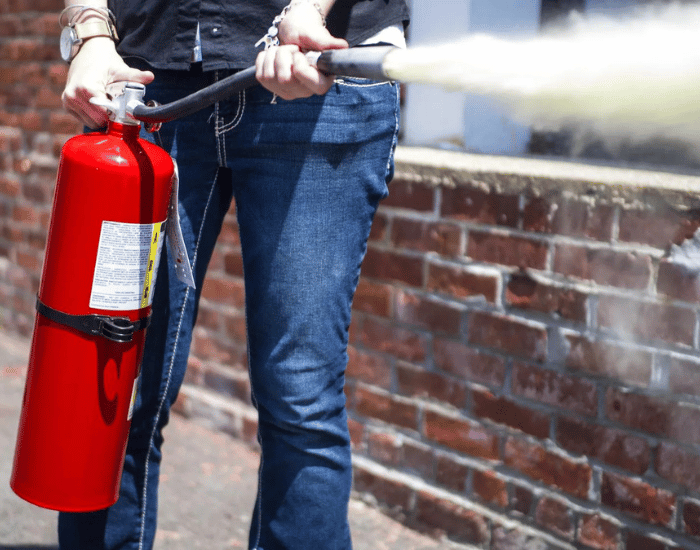The safety of your fire isn’t only about having the equipment you need as well as making certain that the equipment will perform flawlessly when you require it the most. The service of fire extinguishers has evolved into more than routine maintenance, it’s now a essential requirement for any fire equipment dealer who value the reliability, safety and conformity.
If you’re the manager of a busy shopfront or manage clients within a portfolio, understanding the specifics of fire extinguisher tagging and recharge is vital to establishing long-term trust.

Image credit: servicedfireequipment.com
Fire Extinguisher Inspecting is Important But it’s often overlooked
Every extinguisher on the wall of a commercial building may appear ready but is it truly functional? Fire extinguisher inspection is the only way to confirm that. This is a far more complicated procedure than one glance. Technicians who are certified must check the pressure levels, condition of nozzles, seals, tamper indicator, expiration dates, and general wear.
Your customers could be at risk of fire hazards and even fines if you fail to follow these steps. Working with a company that performs thorough inspections allows fire equipment sellers to offer customers peace of mind. They know that their equipment is in compliance with industry standards and equipped for real-world use.
The reason why Fire Extinguisher Recharge Isn’t Optional It’s essential
Make it clear that an extinguisher that’s been discharged or used in a half-full capacity is a liability. If it’s accidentally put in use or was used to set off small-scale fires within the kitchen, it will only be considered safe once it has been properly recharged. The importance of a fire extinguisher charge service is clear.
The process of recharging includes refilling or replacing the extinguishing liquid, repressurizing and examining the internal components. This is a process that requires precision, knowledge of the various extinguisher models (dry chemical CO2, foam etc. This process requires precision and understanding of the various types of extinguishers (dry chemicals CO2, foams, etc.) and the most modern equipment.
Most dealers prefer to outsource the task to a fire extinguisher service that is specialized in walk-in recharges. This allows them to reduce the operational cost without compromising on quality.
How do you safeguard your business and customers with fire extinguisher tags
This is a tiny detail that has enormous impact: the label.
The tag of a fire extinguisher an evidence that the equipment was checked as well as certified and maintained according to federal and state safety codes. The tag contains date of service; technician ID; kind of inspection performed and time of next scheduled service. The tag is more than just a piece paper that business owners need to have. It offers a layer of protection against legal liability. Dealers, it’s a symbol of trustworthiness.
Tags that are not correct or complete could lead to failed safety audits or fines as well as losing trust from clients. This is why working with an agency that has legal and accurate tag-making practices is essential.
A Smarter Business Model: Outsource the Service, Own the Relationship
A large number of fire equipment dealers prefer to spend their time building relationships with clients and closing sales rather than running their own service department. That’s why outsourcing fire extinguisher servicing which includes checks, recharges, and taggings, to a specialist service provider is gaining popularity across the U.S.
By handing off the technical duties, dealers will be able to grow faster, cut down on liability, and ensure every extinguisher sold or leased is ready to perform when property and lives are on the line.
Final Thoughts
Maintenance of fire extinguishers should not be an afterthought in today’s safety conscious business world. It’s now a crucial element of success. Dealers who focus on thorough inspections, reliable recharge and legally valid tagging aren’t just selling products, they’re giving peace of mind, trust and security. And in the field of fire protection, it’s that kind of value that never expires.